There are 5 All Soul’s Saturdays. 2, 3, and 4 were on Saturdays during the Great Fast on days that had no other commemoration (e.g. the Miracle of Theodore and Akathistos). This is due to the liturgical law that fasting periods are more conservative and retain ancient customs. Saturday, the day our Lord was in the tomb was a day for remembering the departed, and that has persisted until the present in Lent.
The All Souls’ Saturday before Meatfare Sunday was due to the Church Year. Meatfare Sunday was the Gospel of the Last Judgment and, in a way, concluded the regular cycle of Gospel beginning with Pascha and lasting until the next Great Fast (beginning with Cheesefare Sunday). It was natural, therefore, to remember the departed as we pray for all before the final and last judgment. The fifth All Souls’ Saturday the day before Pentecost does not have clear origins. Some have said that it is the Christianization of the pagan feast of Rosalia, which remembered virgins who have died a violent death. Their souls were locked in trees and were released on this feast day.
The Christians generalized this into a general feast for all the departed. Some find this controversial, since the ideology is that Christians owe nothing to pagans. We have no concrete evidence one way or the other. It might be connected with All Saints, which in the Byzantine Church was the Sunday after Pentecost, but this does not explain the one week delay. At any rate, though Pentecost is the Christian feast of the 50th day, corresponding directly to the Jewish feast of the Mt. Sinai covenant (note the Upper Room), it was also called Rusalka (in Slavonic) since it happened closely to the pagan feast.
The All Saints feast was originally “All Martyrs,” namely those who died a violent death in witness to Christ. Rome originally celebrated it at the same time as the Byzantines, but moved it to November 1, the Dedication of the Pantheon, the pagan temple made into the Christian Church of the All Saints. In our faith and worship, though, this all has a clearly Christian meaning.
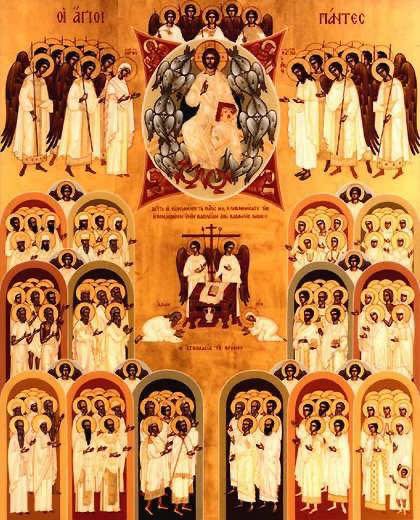
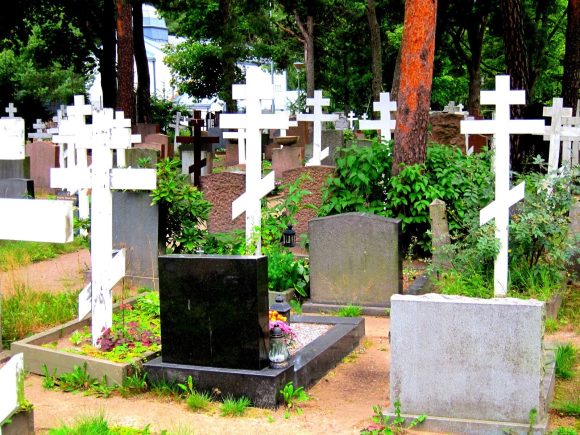
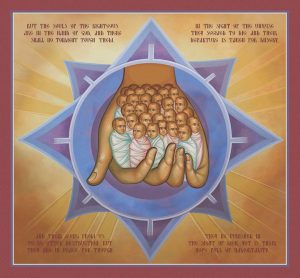 The final All Souls Saturday –Sorokousty– will be on June 4, at 9:00 a.m. The Divine Liturgy with the prayers for the dead will be prayed.
The final All Souls Saturday –Sorokousty– will be on June 4, at 9:00 a.m. The Divine Liturgy with the prayers for the dead will be prayed.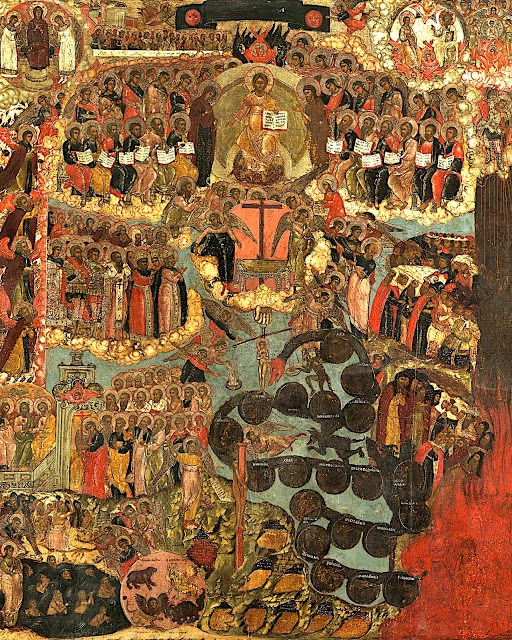 ***Nota Bene: Divine Liturgy this morning at 9:00 a.m.
***Nota Bene: Divine Liturgy this morning at 9:00 a.m.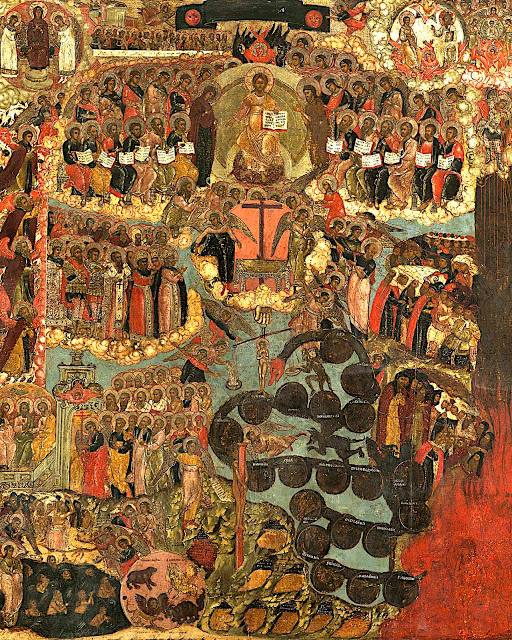 Everlasting life, promised in Holy Communion, is a central teaching of our faith. In the Nicene-Constantinopolitan Creed, which we recite in every Divine Liturgy and also frequently in the Divine Praises, says, “I expect the resurrection of the dead and the life of the world to come.” It is interesting that here we say, “I expect” rather than “I believe.” This is because this life beyond death is not only a matter of faith but also a matter of hope. And both faith and hope are virtues beyond human power alone, but need also the grace of God. In a way, we do not understand this life beyond death, probably we can that just as a child in the womb does not understand what it is to live in the world.
Everlasting life, promised in Holy Communion, is a central teaching of our faith. In the Nicene-Constantinopolitan Creed, which we recite in every Divine Liturgy and also frequently in the Divine Praises, says, “I expect the resurrection of the dead and the life of the world to come.” It is interesting that here we say, “I expect” rather than “I believe.” This is because this life beyond death is not only a matter of faith but also a matter of hope. And both faith and hope are virtues beyond human power alone, but need also the grace of God. In a way, we do not understand this life beyond death, probably we can that just as a child in the womb does not understand what it is to live in the world.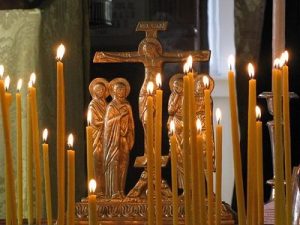 All Souls’ Saturdays (SOROKOUSTY), February 18, March 11, 18, April 1, and then in Eastertime on June 3.
All Souls’ Saturdays (SOROKOUSTY), February 18, March 11, 18, April 1, and then in Eastertime on June 3.